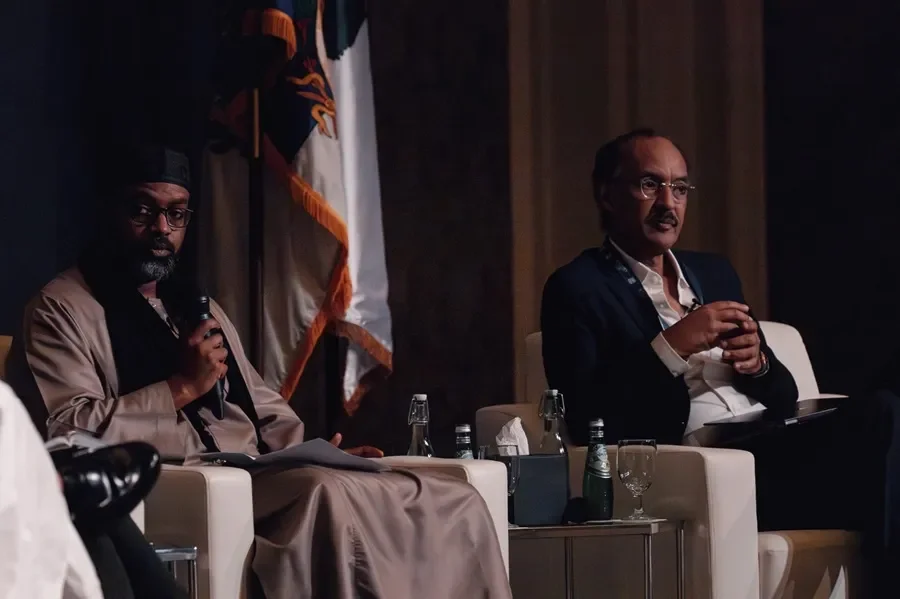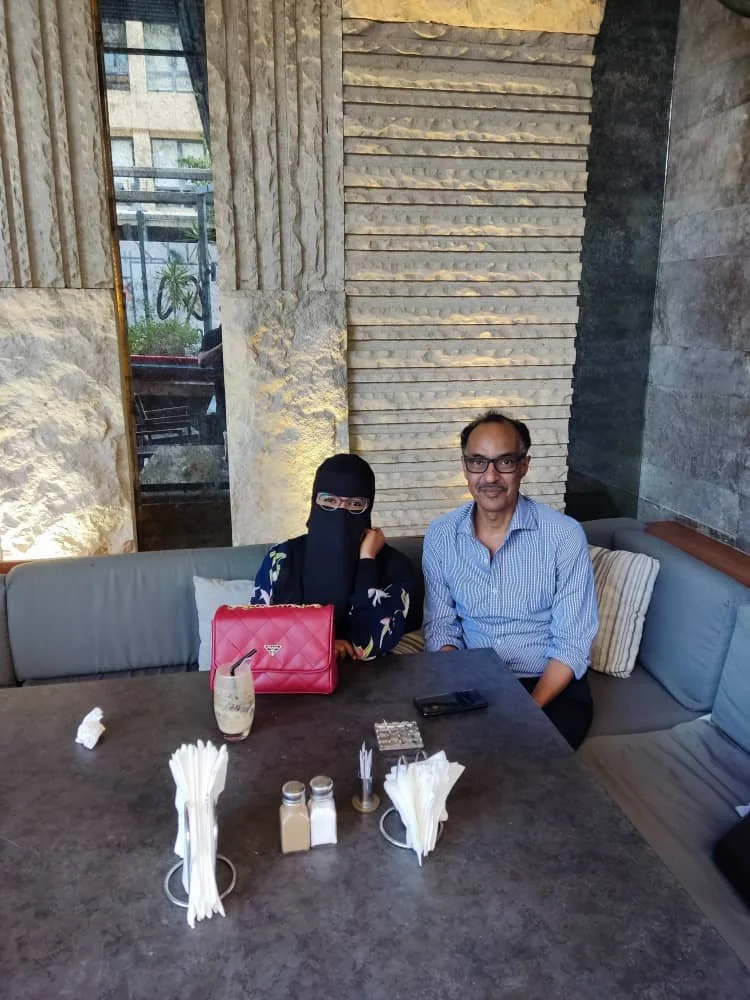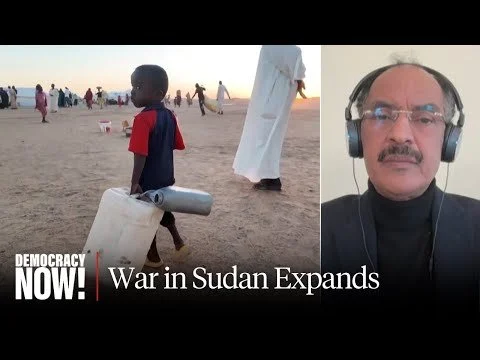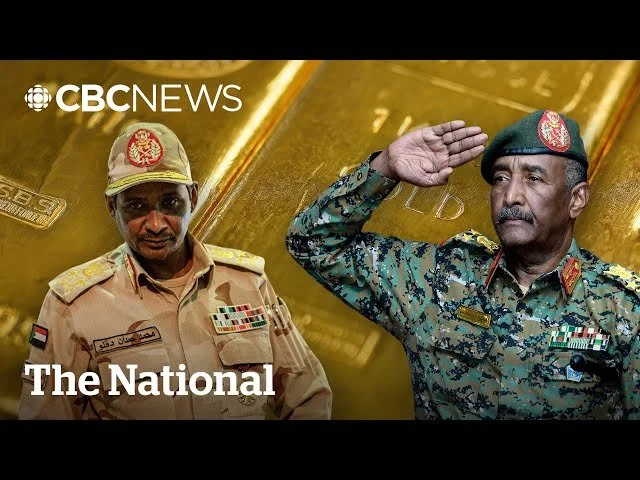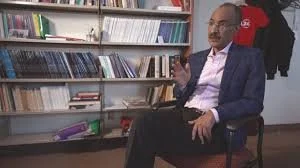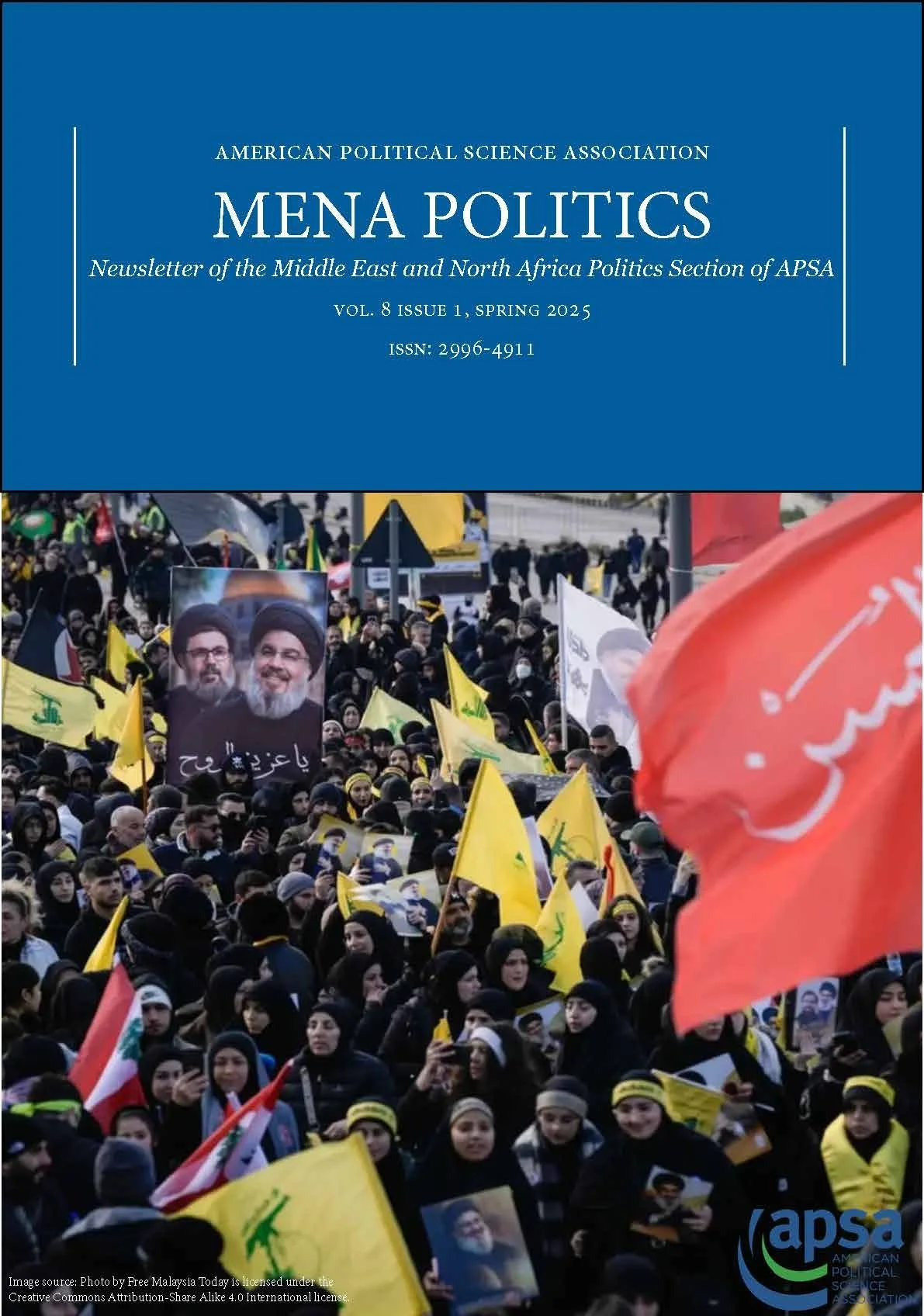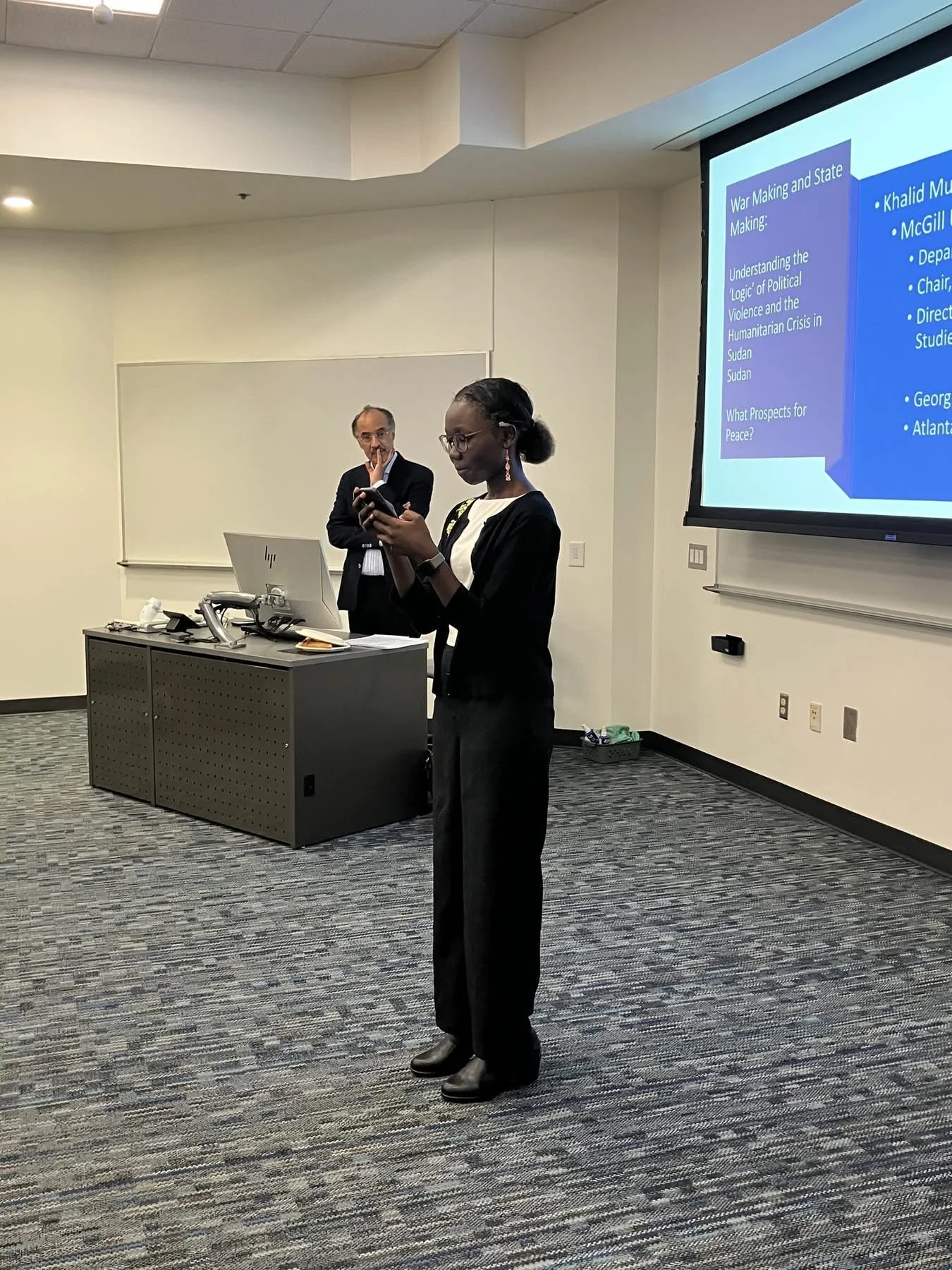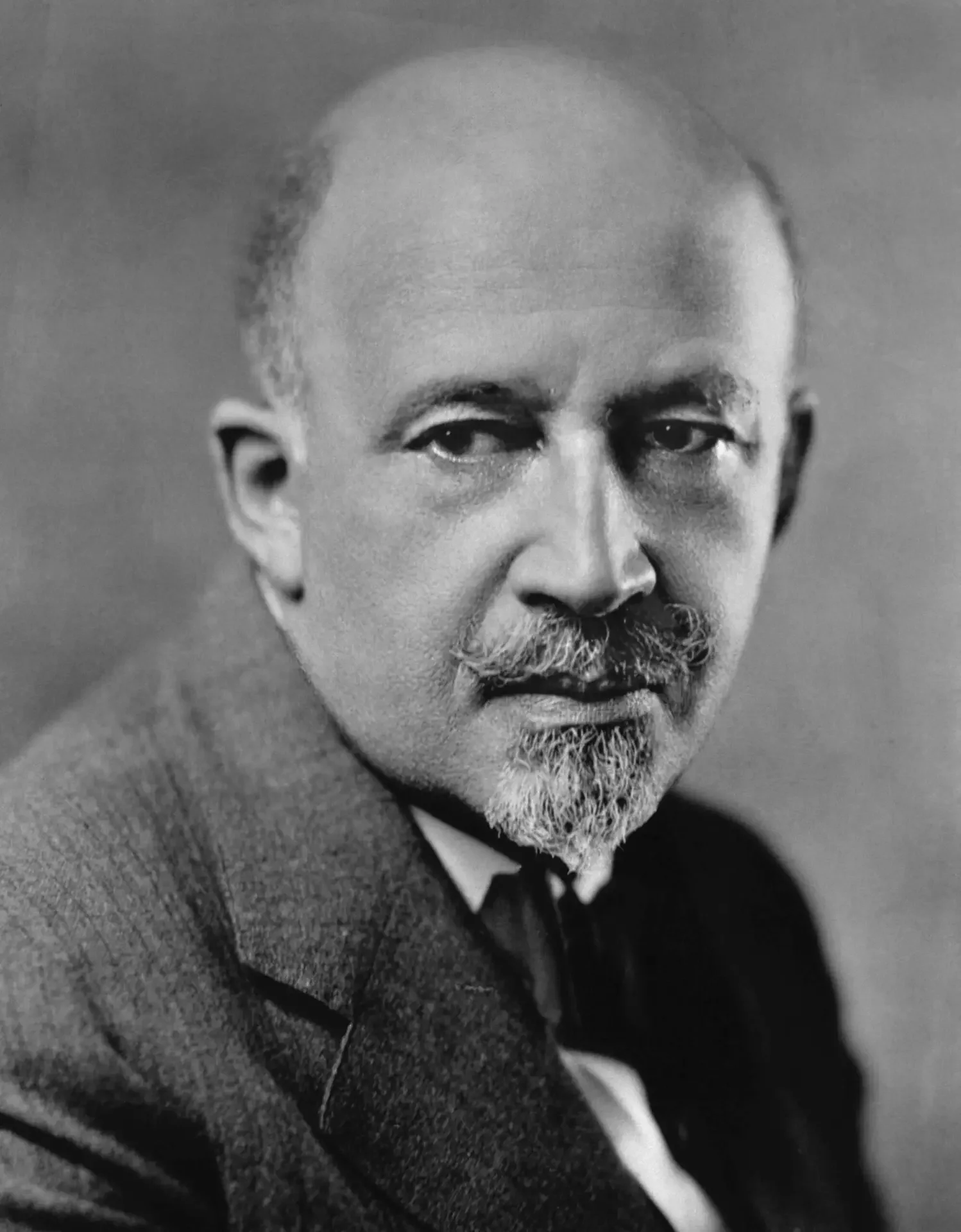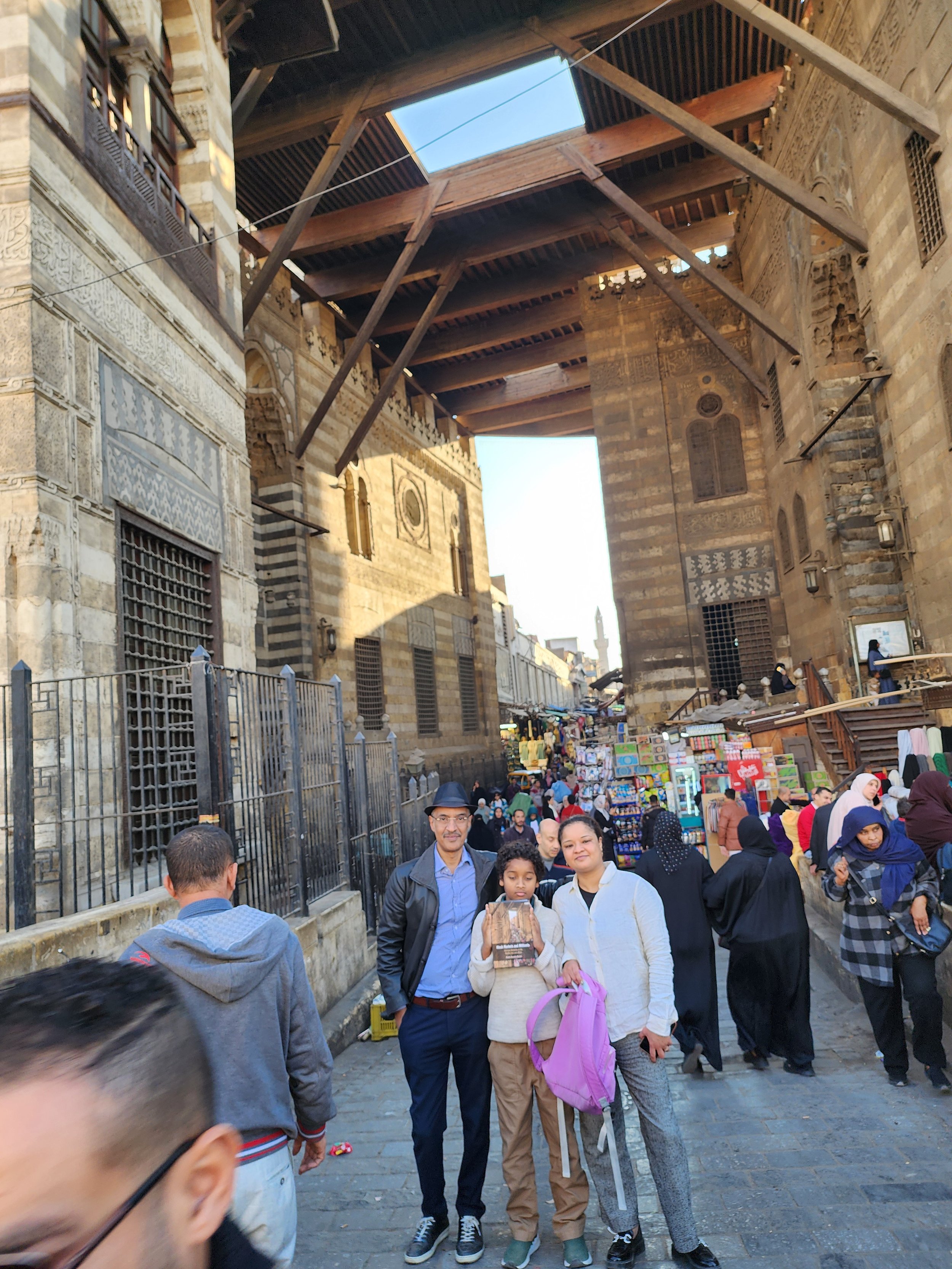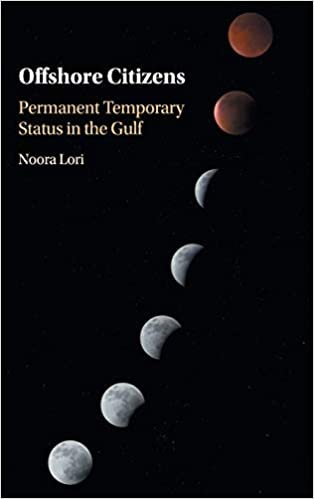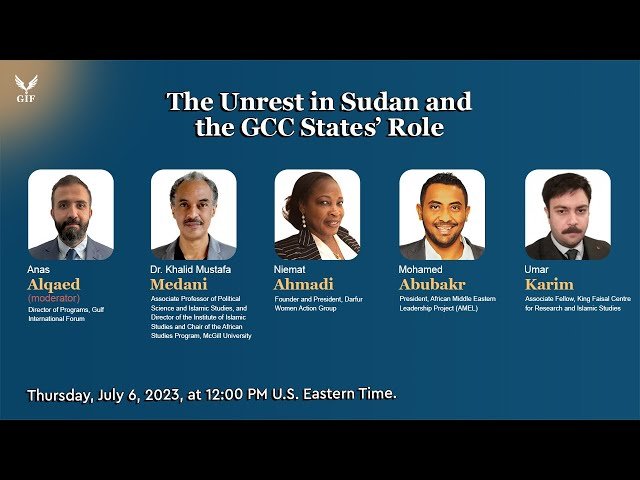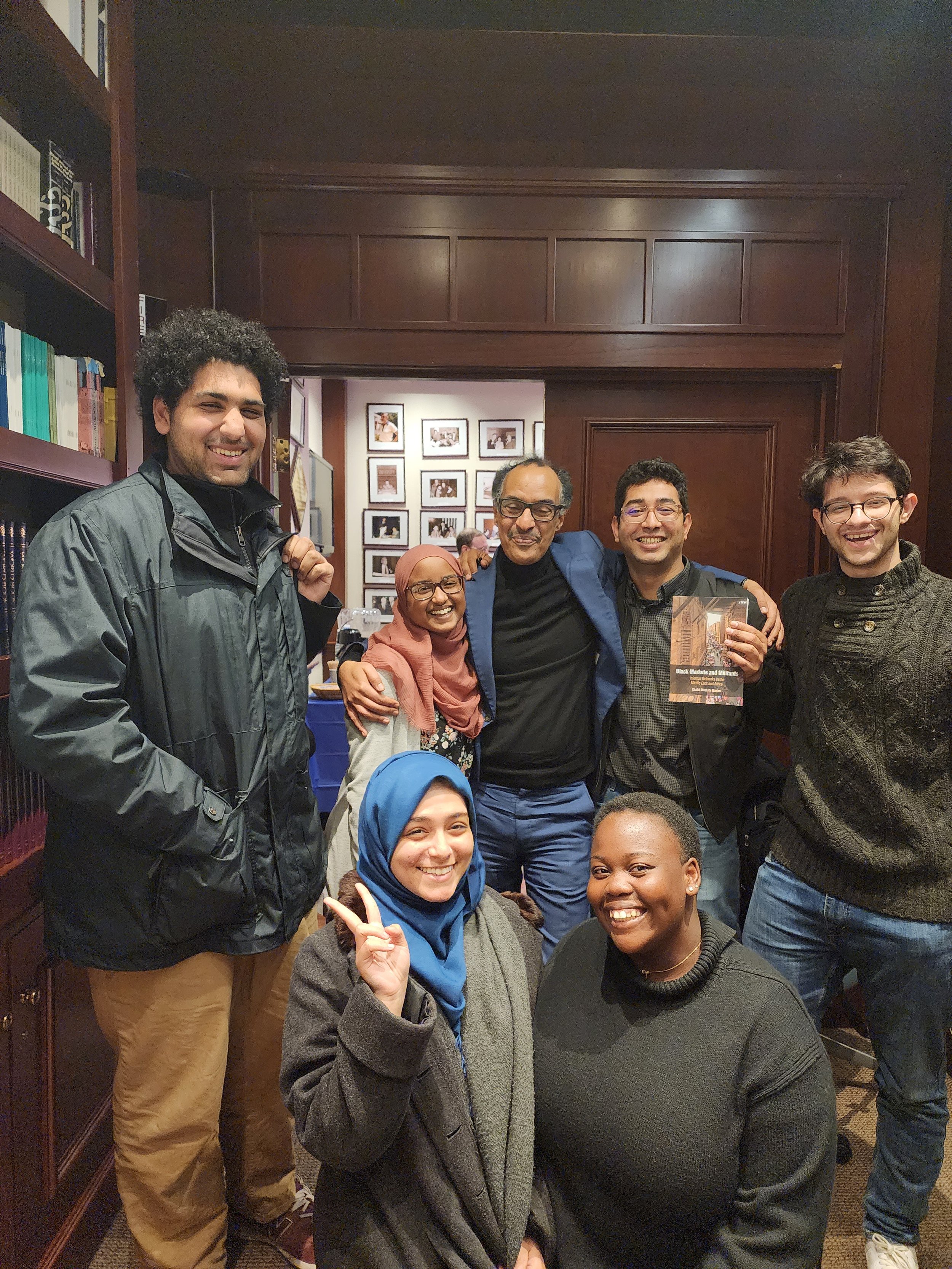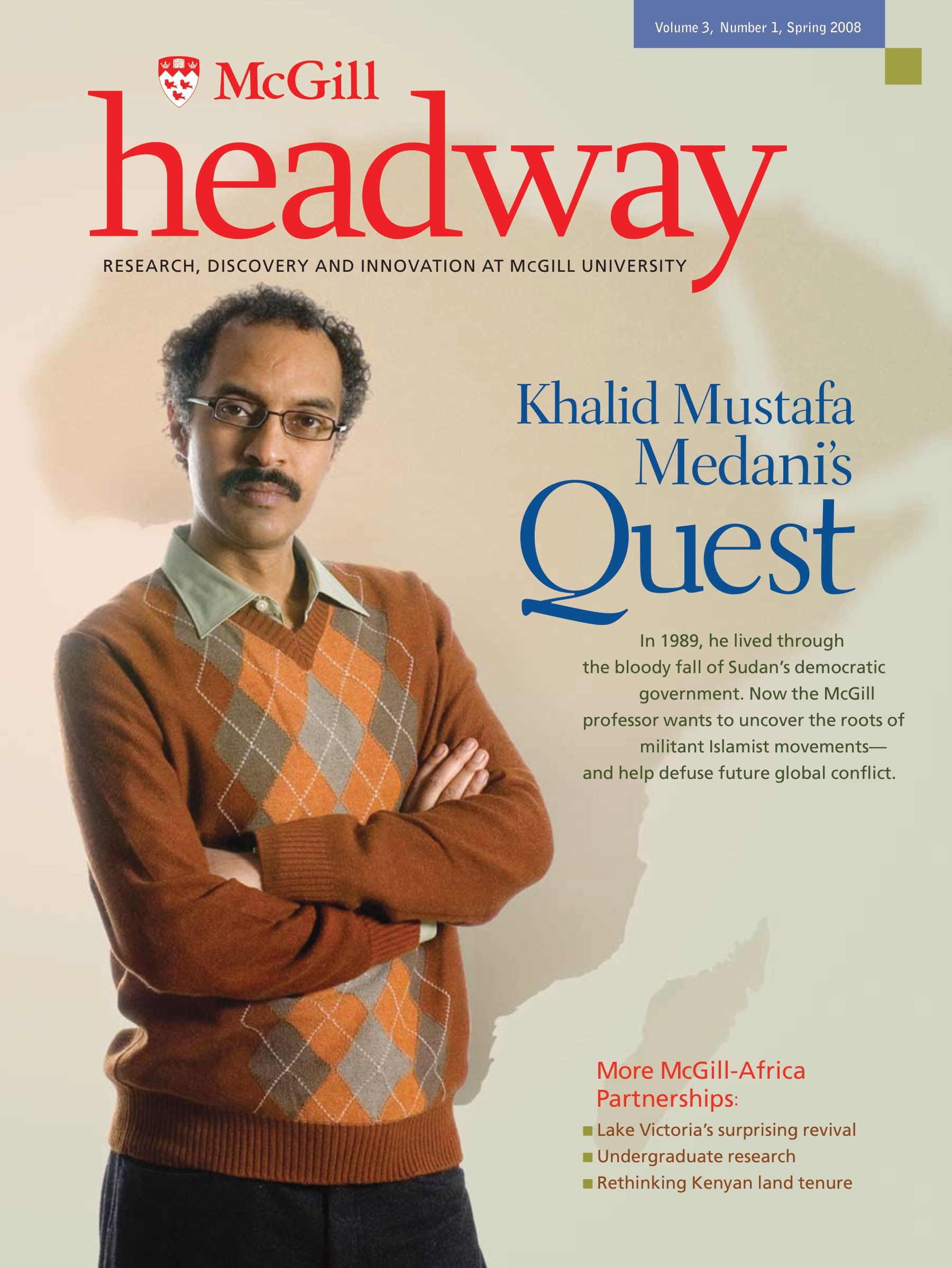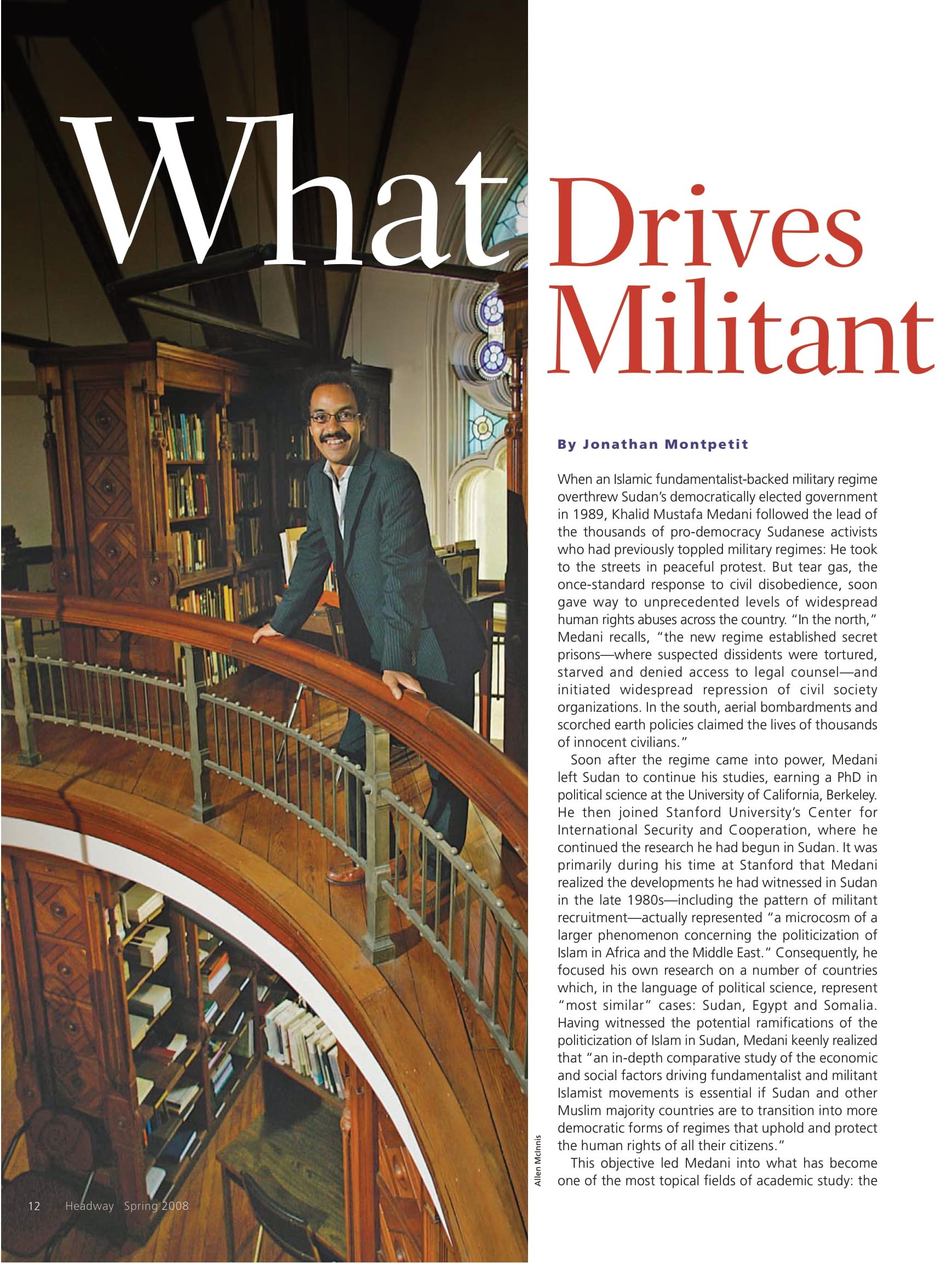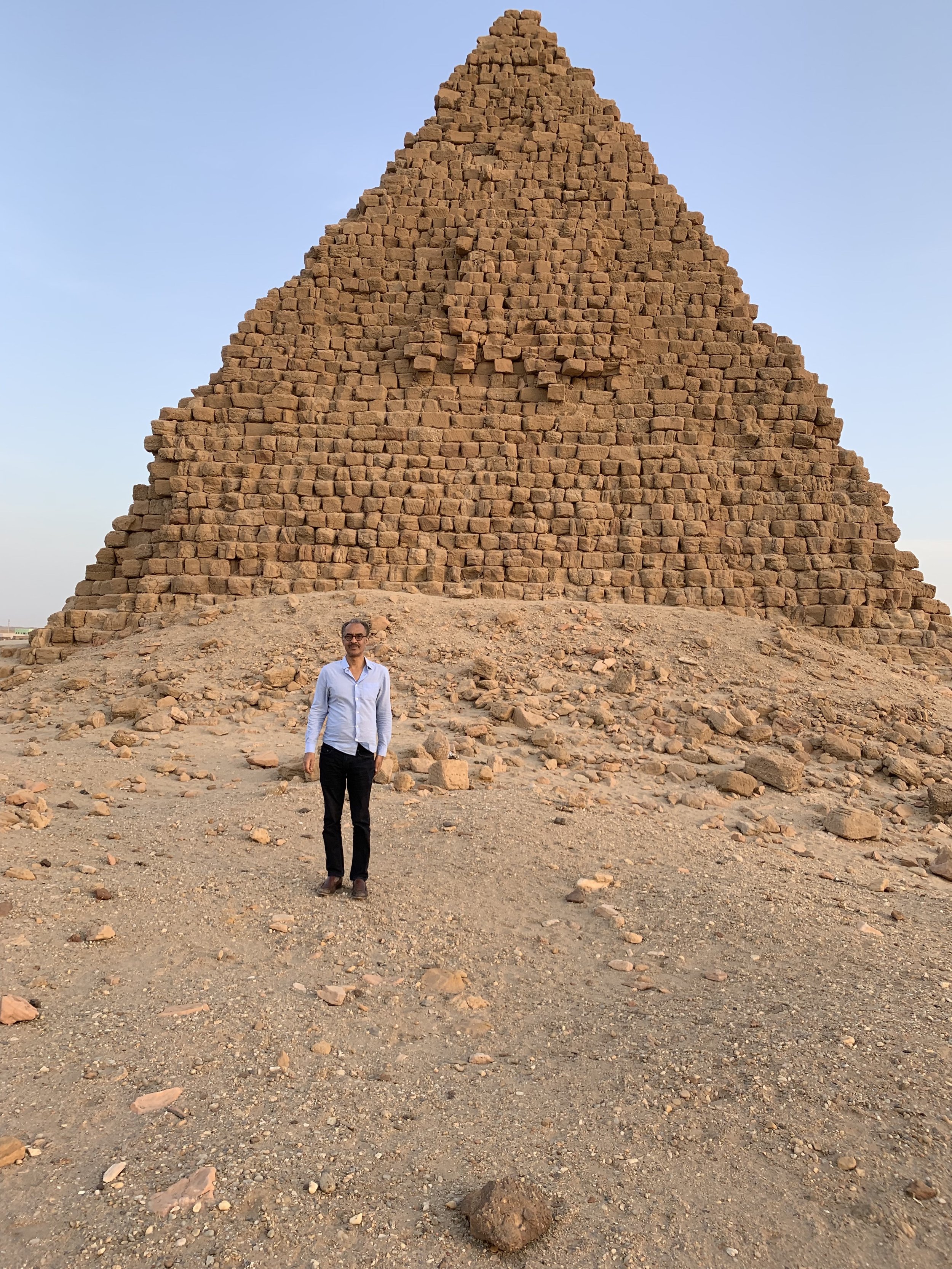ハーリド・ムスタファー・メダニー
خالد مصطفى مدني
Biography in brief
Dr. Khalid Mustafa Medani is Associate Professor of Political Science and Islamic Studies where he is also the Director of the Institute of Islamic Studies and Chair of the African Studies Program at McGill. He has also taught at Oberlin College and Stanford University. Dr. Medani received a B.A. with Honors in Development Studies from Brown University, an M.A. in Development Studies from the Center for Contemporary Arab Studies at Georgetown University, and an M.A. and Ph.D. in Political Science from the University of California, Berkeley. His research focuses on globalization, and the political economy of Islamist and Ethnic Politics in Africa and the Middle East with a special focus on Sudan, Egypt, and Somalia. Dr. Medani is the author of Black Markets and Militants: Informal Networks in the Middle East and Africa (Cambridge University Press, 2021; Open Access) which received an award from the American Political Science Association for the Best Book in the Field of Middle East and North Africa Politics by a Senior Scholar in 2022.
RESEARCH AND TEACHING PHILOSOPHY
Fields of Expertise: Comparative Politics, Political Economy, African, Middle Eastern and Islamist Politics
Want to understand the roots, dynamics and evolution of the War in Sudan? See the list of interviews from the start of the War in 2023 to the Present via the link below.
Why and how has the war expanded in Sudan? What is the logic behind the violence against civilians? What role are external actors playing in sustaining the war? Is there hope for a negotiated solution for peace?
How is Smuggled Gold is funding the War in Sudan? An Investigative Report by CBC, the National.
My Testimony on the War in Sudan to the Subcommittee on International Human Rights of the Standing Committee on Foreign Affairs and International Development, Canada’s House of Commons
Monday, Nov 3, 2025. Ottawa, Canada
Militants and Militias: Authoritarian Legacies and the Political Economy of War in Sudan
The war in Sudan is central to understanding the most urgent and important themes in the politics of the Middle East and North Africa. These include the relationship of authoritarianism and civil conflict; the structural and social inequalities underpinning popular mobilization and revolution; the political consequences of the erosion of state capacity in the context of increasingly informalized economies; the rise of para-military militias as key actors in competing attempts at state building; the politics of extraction and critical minerals in the context of regional instability; and the complicated role of Islamism in domestic and regional politics.
APSA MENA Section. (2025). Militants and Militias: Authoritarian Legacies and the Political Economy of War in Sudan. In MENA Politics (Vol. 8, Number 2, pp. 16–29)
As useful as academic analysis of the war is, the human story of the humanitarian crisis of the children of Sudan and El Fasher in Darfur are immeasurably more important. When I was there in the first war in El Fasher all they asked is that I try to let the world know. We keep our eye on El Fasher and Darfur always!!
An true honor to deliver a lecture on the Roots and Dynamics of War and Prospects for Peace in Sudan at the 2025 Annual Conference of the Association of Sudanese-American Professors in America (ASAPA):
Joining my colleagues as we keep the hope of of Sudanese academia alive
Expert Panel on the War in Sudan
Co-Sponsored by Georgetown University’s Center for Contemporary Arab Studies and the Arab Center, Washington DC. July 31, 2025
Why (and how) can ‘Democracy Matter’ again?
At this time, once again we take inspiration from Cornel West: A great thinker, trailblazer and true humanitarian.
Since the early 1990s over 2 million Sudanese in the majestic Nuba Mountains in Kordofan, Sudan perished as a result of one of the most brutal wars in Africa. I have never been more honoured to be invited to speak at Georgia State University by the honour student, Maysa. A daughter of refugees she took the time to invite me to speak on Sudan and in so doing gave me and all of Sudan inspiration and a lesson in compassion and courage.
In 1961 the pioneering Black American sociologist, historian, and civil rights activist, W. E. B. Du Bois, wrote to my grandfather, the Sudanese scholar Jamal Mohamed, requesting support on what was to be his last great undertaking: the promotion of an Encyclopedia Africana. A project that he conceived that would include not only African scholars but the "best students of Africa." Acknowledging Sudan, Nubia and the Muslim world as central to the principles of Pan Africanism at the time, Jamal Mohamed Ahmad responded with the suggestion that, given the unfortunate discriminatory obstacles against such endeavour at the time, the project should build on the experience of the already established Encyclopedia of Islam. "Africa," Mohamed would write to Du Bois, "must always stretch her hand out."
“Authoritarian Legacies and the War in Sudan.”
the Center for Contemporary Arab Studies’ Magazine, Walsh School of Foreign Service. Georgetown University. May 16, 2025
‘Despite decades of critique against orientalist and modernization theory biases, much analysis of Sudan’s war still falls back on outdated misconceptions—especially cultural essentialism and treating Sudanese institutions as “exceptions” to global patterns. Viewing Sudan as exceptional obscures the deeper historical and structural factors that align it with broader patterns of authoritarianism—though with consequences far more devastating for Sudanese society.’
‘Sudanese people are victims of a litany of human rights violations.’
Khalid Mustafa Medani
Watch the Keynote Address
Sudan: In the Eye of the Storm
A symposium Co-Sponsored by McGill’s African Studies Program and the University of Michigan’s African Studies Department
November 18, 2024
Book commendation from the American Political Science Association’s Middle East and North Africa Politics Section for Black Markets and Militants:
Khalid Mustafa Medani …. has written a highly original account that explains how economic globalization – particularly, labor remittances originating in the Gulf states – impacted social, religious, and political communities in Egypt, Sudan, and Somalia. Despite robust scholarly literatures focused on migration, Islamist militant groups, informal networks, and political economy, Medani has written a breakthrough account linking these diverse subjects in a single coherent narrative. Medani argues that boom and bust cycles of capital inflows interacted with underlying levels of state capacity and local political cultures to construct divergent social and political outcomes. An instant classic, Medani’s expert case knowledge and facility with bridging diverse scholarly literatures makes Black Markets and Militants an exemplar for the field of comparative politics.
In this dense, deeply researched, and edifying volume, Medani takes on the vexed question of how Islamist political movements use informal financial networks in recruiting and sustaining their members. He draws on an unusual and remarkably fruitful comparison of the Islamists of Egypt, Somalia, and Sudan, starting in the 1980s……Medani is particularly acute in describing the complexity of local politics in these countries. The utility of regional identities, clan links, and religious ties varied with fluctuations not only of state policy but also of global business cycles.
American Political Scientist, Professor Lisa Anderson’s Review of “Black Markets and Militants.” Foreign Affairs, November/December 2022.
Book Review of ‘Black Markets and Militants,’ Africa, October 11, 2023.
Contra Polanyi, [Medani] argues that such historical movements of ‘disembedding’ economies from formal state control do not necessarily beget neoliberal utopias but instead provoke new attempts to ‘re-embed’ them – which may revolve around, and bolster, ethnic and religious networks. Because Medani can delve into domestic struggles, he offers an alternative to the kind of pathologies proffered by many Africanists, who sometimes depict African elites as capable of responding to the shocks of international economic crisis and structural adjustment only by manipulating their dependency in ‘extraverted’ patterns of predation.
As the volume is now available freely online, there is simply no excuse for scholars of African politics and the politics of the Islamic world, international political economists and students of conflict not to make themselves fully acquainted with this magnum opus.
Explore the multifaceted history, culture, philosophy, science, literature, and languages of the global and diverse Muslim World at one of the oldest Institutes of Islamic Studies in the western world.
Khalid Mustafa Medani, PhD
Director, Institute of Islamic Studies and Chair of the African Studies Program
McGill University
スーダンをめぐる闘い
In Conversation with Professor Noora Lori on “Black Markets and Militants” and “Offshore Citizens.”
Exchanging insights on the politics of transnational migration, capital inflows from the Gulf , Islamism, globalization, the War on Terror, and how to address some Important theoretical and empirical gaps in Middle East and African political science.”
Extended interview on Sudan’s conflict with the journalist Walter Turner of KPFA Radio, Berkeley, CA. On the critical role of the cessation of South Sudan for understanding the war in Sudan; youth activism and popular protests; pitfalls of post-revolutionary compromises; Darfur & the evolving dynamics/strategies of war; discussing the prospect of Sudan’s ‘balkanization’; external actors, and Sudan’s war in the context of regional re-alignments.
Trust and Rule: Understanding the Politics of Trust in the Middle East and Africa
Lecture at Northwestern University, May 3rd, 2022
Understanding the Struggle for Sudan: A conversation with Azza Abdel Azziz and Nisrin Elamin at Northwestern University. Join us for this zoom panel sponsored by Northwestern Political Science, African Studies Program and the Institute for the Study of Islamic Though in Africa
Lecture and Discussion at York University
September 27
Speaking at a Roundtable on Local Rsponses to Conflict and Displacement in Sudan, Syria and Palestine.
the University of Gothenburg, Sweden
October 16, 2023
OCTOBER 31, 2023
WEBINAR ON TRANSNATIONAL SOLIDARITY AND THE SUDAN CRISIS
Sudanese Academics, Activists and Artists (SAAA) discuss Sudan’s present conflict and hopes for the future
What are the historical and contemporary economic and strategic links and interests between the Arabian Gulf and Sudan? What is their impact on Sudan’s Conflict and how are shifting regional alignments determining relations between the Gulf and the Horn of Africa? How is the competition between Gulf States influencing the conflict on the ground? What role should the GGC States play in resolving the conflict? why (and how) is the inclusion of civil society central to conflict resolution as well as a path to a civilian Democratic transition in Sudan?
What are the underlying Strategies of War Behind Sudan’s Humanitarian Crisis?
why are the current competing international peace Talks failing to bring about a cessation of hostilities and peace to Sudan?
Why have the ceasefire agreements failed? What is at the root of the War? What are the dynamics behind the tragic humanitarian crisis in Darfur?
“This is not to say that I am not squarely placing the blame on these two military generals [Burhan and Hemedti] who have decided to destroy the country for their own self-interest. But it’s important to acknowledge that part of the conflict in Sudan is rooted in this awful competition over its gold, its water, its resources, its strategic location, and I don’t think the Sudanese people deserve to be under that burden.”
“It’s an unbelievable form of scorched-earth policy,” says Khalid Medani (McGill Reporter, June 28, 2023)
Panel of experts hosted by the Australian National University’s Centre for Arab and Islamic Studies:
“Unpacking the Complex Situation in Sudan.”
Interviews on the Sudan Conflict: Context and Analysis
What role does ethnicity and resources play in the present conflict in Sudan
Explaining the Political and Economic Roots of Sudan’s Conflict on ‘Democracy Now’
Discussing Sudanese politics on COUNTERPUNCH: on the legacy of colonialism; the creation of the modern Sudanese State and the long civil war; roots of the present conflict; class politics and protests; and the role of regional and global actors in Sudan’s War.
Discussion on the conflict in Sudan: The McGill Alumni Association Broadcast
Go ahead. Flip it open :)
Thank you for your letter of April 27, 1961, in which you inform me of Encyclopedia Africana. I am particularly impressed by what you say about including “among its writers the best students of Africa in the World. Africa on the other hand must stretch her hand out.”
Jamal Mohamed Ahmad, May, 1961
A COMMITTMENT TO RESEARCH, EDUCATION AND PUBLIC SERVICE
H.E Mustafa Medani Abbashar and Aida Jamal Mohamed Ahmad
Genesis of Research
What Drives Militant Islam?
The Political Economy of Islamist Politics in Sudan
The Social and Political Origins of the Muslim Brethren in Syria and Sudan
With Gratitude and In Memory of my Professor and mentor, Dr. Hanna Batatu
What Explains the Success of Sudan’s “Impossible Revolution,” in comparison with other popular uprisings in the Arab World?
Read the entire volume of Struggles for Political Change in the Arab World: Regimes, Oppositions, and External Actors after the Spring, edited by Lisa Blaydes, Amr Hamzawy, and Hesham Sallam and published by the University of Michigan Press (2022).
باب المندب
The Gate of Lamentation
The Bab al-Mandeb strait, the “gate of lamentation,” derives its name from the dangers attending its navigation and, in Arab legend, from the historical tragedy (hence lament) that ensued following an earthquake that separated the Arabian Peninsula from the Horn of Africa.
What role has geography and geopolitics played in the historic partition of what was Africa’s Largest Country in 2011?
Supporting Student Research
Edted by McGill’s African Studies Students Association
Readers of Uhuru will immediately recognize the Journal’s overall sentiment of “sharing.” That is, the ways in which cross-disciplinary work on Africa contributes to our understanding of some of the most pressing issues not only in Africa but throughout the globe. Consequently, and taken together, the contributions to this volume not only center work on and about Africa in new, novel, and critical ways; they foreground the avenues through which scholarship on Africa is crucially and foundationally determined by how we imagine, research and write about the continent of Africa. (Khalid Mustafa Medani).
“The Great Transformation in the middle east and Africa.” Lecture,Cornell University
How can we understand the ways in whiich economic globalization expands informal markets in the Middle East and Africa resulting in the emergence of new forms of religious and ethnic politics? Applying some insights from Karl Polanyi.
the new political economy of Islamism: Author Interview & Book Review:
What is the relationship between transnational flows of labour and capital in the Middle East and Africa and the new political economy of Islamism?
What factors resulted in the success of the pro-democracy protests in Sudan in 2018-19, and what obstacles remain in the path towards the struggle for democracy?
Understanding Sudan’s Turbulent Politics.” Recorded lecture, Princeton University.
What regional and internationoal factors may promote but also inhibit the process of democratization in sudan?
Sudan’s Political Crisis: The Domestic and Regional Factors. Recorded (Youtube) lecture, Brown University.
Book Launch/Lecture on “Black Markets and Militants” on YouTube
Stanford University, February 2022
“New Sudanese Voicies.” Lecture on Sudan’s Revolution
BROWN UNIVERSITY, MY ALMA MATER
Lecture on the Politics of Migration and Labor Remittances in the Middle East and North Africa
UNIVERSITY OF CALIFORNIA, BERKELEY, MY ALMA MATER
One of the most gratifying aspects of academia is to have the privilege to engage in public debates and share insights from the University to the larger global community as part of a commitment to public service. Below are some select interviews, and Discussions on News and social media platforms
Listen up
Discussing “Black Markets and Militants” with Professor Marc Lynch on the POMEPS Middle East and Political Science Podcast.
In the 2000s, three important trends combined to revitalize and alter the nature of the student and youth movement in sudan: demographic change, economic austerity, and intensified state repression.
Background to the 2018-19 Pro-Democracy Uprising in Sudan
Extended Podcast Interview, 2013
The Prospects for a Civilian Transition in Sudan following the Military Coup.
An Update and Discussion with Mouin Rabbani on Connections.
The Coup in Sudan.
Discussing the Roots and Consequences of the Military Coup of October 2021 with Mouin Rabbani on the Connections Podcast
Sudanese Female Artist and Activist
This is documentation; documentation of history; documentation of my name; documentation of Sudan. If the uprising is not documented, then it simply becomes something that came and left. The coming generations will then not have a history because they will not know our history. We are documenting the history of previous generations; documenting the history of the martyrs who died and documenting our history as fine artists.
A watercolor painting by Galal Yousif Goly titled, "A Peaceful Revolution."(GALAL YOUSIF GOLY)
The Catalyst to Revolution: Explaining Anti-Government Protests in Sudan in 2018, Part 1
Pic with leaders of the Sudanese Professional Association (SPA) , Khartoum, Sudan
Sustaining Pro-Democracy protests: Sudan’s 2018-19 Revolution, Parts I & II
Prelude to Revolution: Discussing Sudan’s Political Landscape in 2016 with Prof. Bassam Haddad
on the Roots and Dynamics of Sudan’s Revolution
The Zenith of Revolution: the Ouster of the Dictator Omar Bashir in Sudan, April 2019
Why Are Women at the Forefront for Political and Social change in Sudan?
My Interview on January 2019 at the start of the popular protests in Sudan
My Interviews on the PBS Newshour
The Palace Coup in Sudan of 2019: Why Protests Continued
PBS Interview
The Roots of Civil Conflict in South Sudan
Interview with Judy Woodruff
What has the historic secession of South Sudan meant for Sudan and Africa?
The Debate
What can Sudan’s 2018 Revolution teach us about the relationship between Economic Reforms and popular Protest in the middle east and africa?
Analysis of The Genesis of the Armed Conflict in South Sudan, 2014
article on the consequences of the US led War in Iraq of 2003.
“State Building in Reverse: The Neo-Liberal ‘Reconstruction’ of Iraq.” Middle East Report, no. 232 Autumn, pp. 28-35, 2004.
U.S. Policy and the Somalia Conflict: Precursor to Al-Shabbaab?
KQED Discussion with Professor David Laitin of Stanford University, January 2007.
What do the Sudanese Protestors want?
CGTN Television Interview
The Quest for Democracy in Sudan.
Community Radio, Houston, Texas.
Roots of Protest
Community Radio, Santa Barbara California
Why Protests Continue in Sudan.
Community Radio, Baltimore Maryland
Discussing protests in Sudan and Algeria.
Canada in the World Radio Interview
What is next for Sudan.
Real Talk, Canada Public Radio. October, 2021
On the Consequences of the Death of John Garang, Leader of Sudan’s Peoples Liberation Movement in 2005
What led to the partition of Africa’s largest country in 2011? And why has the secession of South Sudan not resulted in the promised peace?
“The roots of the conflict are not "tribal" but political-economic: the authoritarian nature of the ruling Sudan People's Liberation Movement (SPLM); the country's reliance on oil rents; and competition over resources in rural areas, exacerbated by the privatization of communally owned lands. Only the combination of these factors can explain why so many Dinka and Nuer youth have taken up arms.” (Khalid Mustafa Medani).
What Explains the Roots and Severity of South Sudan’s Inter-Communal Violence Today?
What are the legal, political and humanitarian consequences of the the Global War on Terrorist Finance?
Why has it proved counter-productive in the fight against global terrorism despite a reported expenditure of over $6 Trillion dollars since 2011?
Want to Fight Terrorism? Think Globally, act Locally. Op Ed
"Want to Fight Terrorism? Think Globally, Act Locally," Middle East Report Online, August 04, 2008.
Article Comparing Islamists in Sudan and Egypt: the Consequences in the aftermath of Tahrir
“There are no religious differences in Africa and any conflicts that arise are purely secular in nature”—a controversial declaration, but one that provokes a relatively uncharted course allowing for discovery. Nowhere is such an exploration more needed than in attempts to understand the tragedy that has befallen Sudan.” (Jamal Mohamed Ahmad)
“Insistence on democracy as the ultimate tool of conflict resolution should not be viewed as an attempt to subvert Sudan’s sovereignty, but rather as a demonstration of confidence in the genuine democratic aspirations of the Sudanese people, unencumbered by dreams of conquest or rallying gestures at fortress walls.” (Khalid Mustafa Medani)
Religion, Social Movements, and Protests in the Middle East.
Roundtable with Asef Bayat, Chris Toensing, and Norma Moruzzi. The Northeast Ohio Consortium for Middle East Studies, 2012.
On the Responsibilities of the Cartoonist
My Interview with the Sudanese Artist, Khalid Albaih along with Katy Kalemkerian
(Middle East Report, Spring, 2015)
Follow Khalid Albaih on Instagram at: https://www.instagram.com/khalidalbaih/?hl=en
Fields of Expertise: Comparative Politics, Political Economy, African, Middle Eastern and Islamist Politics
RESEARCH AND TEACHING PHILOSOPHY
Supervision of PhD, Masters, and Undergraduate students in the Department of Political Science, the Islamic Studies Institute, and African Studies at McGill University
Read Review of Jamal Mohamed Ahmad’s “The Intellectual Origins of Egyptian Nationalism” by P.J. Vatikotis in the American Poliitcal Science Review (APSR), June 1961
Sheikh Muhammad Abdu and his students at Al-Azhar, Cairo
On the whole this is an unusually competent work on a subject most American political scientists would unfortunately relegate to the historian. Its importance, however, cannot be overlooked by students of Egyptian and Middle Eastern politics. (P.J. Vatikotis).
Those who have admired the temples, the churches, the fortresses, the statues, the steles, the paintings, the engravings and icons unearthed from the Nubian sands, may find in these stories what no object can tell us: the passions that had created them. All had been spent and only the mystery remains. These represent the “mystery.” (Jamal Mohamed Ahmad, “Stories of Serra East,” 1985)
A book of children’s stories from the village of Serra Sharq, Nubia, Sudan. Jamal Mohamed Ahmad collected these stories and put them down in writing especially for the children of the African continent and for future generations to make their own.
Old Nubian manuscript from Serra East dated 973 AD. The subject of the text it a discourse on Christ and his Apostles.
Aida Jamal Mohamed Ahmad with Shafiq al-Hout
Beirut, Lebanon
“You must conduct research that speaks to the needs of the larger community and social justice at the time and not purely for your own self satisfaction or indulgence.”
Aida Jamal Mohamed Ahmad.
Portrait by artist, Ismail Shahnoon.
Contact
Feel free to contact me.
Email
khalidmedani10@gmail.com
Phone
On Twitter
https://twitter.com/khalidmedani4


